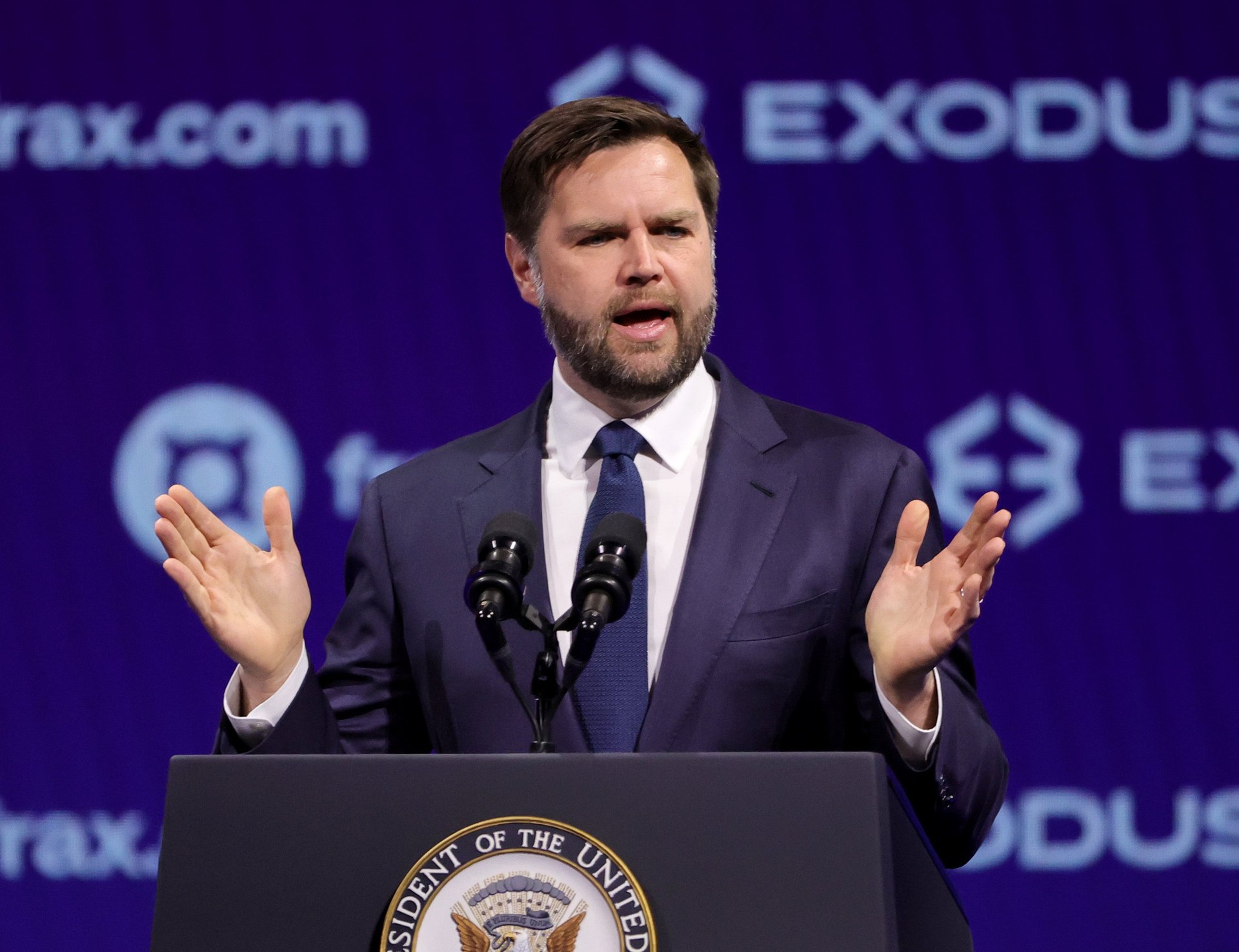JD Vance wants the Bitcoin community to get involved in politics
The crypto industry donated millions to Republicans during the last election. The vice president says keep going

Vice President JD Vance has a message for cryptocurrency holders: “Don’t ignore politics.”
Suggested Reading
Vance issued the call to arms during his keynote speech at the Bitcoin 2025 conference in Las Vegas, Nevada. “I guarantee you, my friends, politics is not going to ignore this community, not now, and not in the future,” he added.
Related Content
The vice president emphasized the strategic and geopolitical importance of Bitcoin, noting that the U.S. must maintain leadership in the crypto industry to remain competitive in the new era of digital finance.
“What happens in the world of politics, what happens in the world of bureaucracy, will affect even the most transformational and valuable technologies if we do not make the right decisions,” he said. “The first thing that I would ask you, is to take the momentum of your political involvement in 2024 and carry it forward to 2026 and beyond.”
During the 2024 federal elections, Fairshake, the largest crypto-related super PAC — political action committee — spent more than $26 million campaigning for Republican candidates and against Democrats, according to OpenSecrets.
The industry’s lobbying expenditure appears to be paying off. Since President Donald Trump emerged victorious in November’s election, Bitcoin has appreciated more than 56% in price, currently trading at around $107,000, as of Thursday afternoon.
The Trump administration has also embraced a friendlier stance when it comes to crypto policy. Trump’s executive order “Strengthening American Leadership in Digital Financial Technology” appointed a crypto “Working Group” which has until July to submit legislative and regulatory proposals to advance digital assets. The Securities and Exchange Commission’s new Crypto Task Force is also expected to publish the first-ever digital asset framework this year, which could result in institutional capital flowing into the industry.
Meanwhile, 26 U.S. states have introduced Bitcoin strategic reserves, mirroring Trump’s federal version. Arizona’s two bills are headed to the House for a vote, and if passed, would allow the state Treasury and retirement system to invest up to 10% of its available funds into bitcoin.
The regulatory shift in the U.S. may be influencing policy overseas too. Foreign governments have indicated a possible reset on crypto. For example, India’s economic affairs secretary, Ajay Seth told Reuters in February that digital assets “do not believe in borders.” Meanwhile, at least nine countries are now considering reserves of their own. That list includes Russia and Venezuela, however, suggesting the initiative could be in a bid to circumvent economic sanctions from the West.
